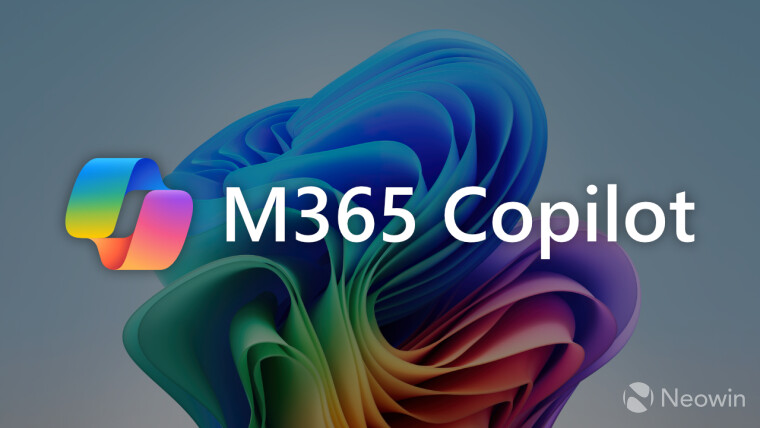European politicians and advocacy teams are adamant that the area’s laws just isn’t hardline sufficient to dismantle the monopolies of Large Tech firms. Within the final week, two open letters have been penned to regulators criticising how Apple and Google stay unchecked.
On Jan. 16, 4 digital rights teams responded to the measures proposed by the European Fee for Apple to make sure interoperability with iOS and iPadOS working methods. They allege that Apple’s present course of for dealing with interoperability requests is convoluted, discouraging builders from submitting them.
“Gatekeeper” organisations — probably the most distinguished tech companies working in Europe, together with Apple and Google’s mum or dad firm Alphabet — should present third events with the instruments they should make their software program and {hardware} merchandise work seamlessly with their very own, as per the Digital Markets Act.
SEE: EU Approves NVIDIA Deal With Run:ai, Pushes for Apple Interoperability
The subsequent day, Membership de Madrid, a community of former European heads of state, voiced its assist of the Fee “finish(ing) Google’s monopoly over digital promoting applied sciences” by compelled divestiture.
“Google’s unchecked dominance, stemming from its 2007 acquisition of DoubleClick, has stifled competitors and consolidated its management over each section of the adtech market,” the 18 leaders wrote in a letter.
In June 2023, the Fee instructed Google {that a} “obligatory divestment” of a part of its advert tech enterprise can be the one option to deal with competitors considerations. This got here after an investigation yielded the preliminary view that the corporate had breached E.U. antitrust guidelines. Based on Membership de Madrid’s letter, the Fee will announce the ultimate final result quickly.
Digital advocacy teams say Apple remains to be capable of keep away from interoperability with the present Digital Markets Act
In September 2024, the European Fee initiated two proceedings below the DMA to information Apple into enhancing interoperability between iOS, iPadOS, and third-party units like smartwatches and headphones. Then, in December, it revealed its preliminary findings and proposed remediations.
Really helpful measures embrace bettering compatibility between iOS and options of units corresponding to smartwatches and earbuds. These options embrace notifications, computerized Wi-Fi connections, AirPlay, AirDrop, and computerized Bluetooth audio switching.
SEE: Meta and Apple Violated the Digital Markets Act, EU Expenses
The authority additionally prompt that Apple make its course of for builders to request interoperability inside iOS and iPadOS options extra clear and predictable. This entails offering clear details about its inner options and well timed request standing updates.
Nonetheless, Free Software program Basis Europe, ARTICLE 19, European Digital Rights, and Knowledge Rights stated that the Fee’s proposals are “clearly poor and structurally incapable of delivering efficient interoperability.” Of their letter, the teams advocate that Apple ought to:
- Embrace interoperability by design as it’s “required by the letter of the DMA” reasonably than counting on a reactive, request-based mannequin.
- Not be allowed to “impose non-disclosure agreements solely at its personal discretion” that block entry to APIs.
- Be required to offer a standardised, freely accessible interoperability request type to builders, dedicate enough sources for dealing with them, and supply better transparency on a request’s standing or rejection.
- Not have the ability to use safety claims to dam efficient interoperability.
- Be inspired to supply “versatile” third-party APIs in response to interoperability requests, which accommodate various developer wants.
- Enhance or overhaul its system for addressing interoperability-related bugs.
Additionally they recommend that the Fee ought to appoint impartial conciliators to resolve disputes and stop Apple bias.
In response to the Fee’s proposed measures, Apple revealed a doc outlining how granting entry to its know-how stack and, thus, person knowledge might compromise privateness and safety. It highlighted how Meta had made 15 requests for entry to Apple’s software program instruments that, if accepted, would offer swathes of person knowledge, and that the corporate “has been fined by regulators again and again for privateness violations.”
SEE: Meta Presents Much less Personalised Advertisements for EU Customers to Appease Regulators
Meta Communications Director Andy Stone responded to this on X: “Right here’s what Apple is definitely saying: they don’t consider in interoperability. In truth, each time Apple is known as out for anticompetitive habits, they defend themselves on privateness grounds that haven’t any foundation in actuality.”
Former European heads of state say that Google’s dominance within the advert tech sector places democracy in danger
The digital promoting know-how sector, referred to as the “advert tech stack,” consists of varied intermediaries facilitating the sale of on-line advertisements. Google owns 4 of those: Google Advertisements, DV360, AdX, and DoubleClick For Publishers.
Google Advertisements and DV360 are each utilized by advertisers to bid for advert areas on web sites and apps. DoubleClick For Publishers is a platform for managers of internet sites and apps the place they’ll listing their obtainable advert area. AdX connects the 2 by matching the very best bidding advertiser with the web site or app supervisor in a real-time public sale.
Membership de Madrid described this setup as “as if Goldman or Citibank owned the New York Inventory Change.” Google’s possession of a good portion of the advert tech stack implies that “Europe’s democracy remains to be in danger” regardless of the publication of the pioneering DMA and Digital Companies Act.
The group, which incorporates former heads of state from France, the Netherlands, Austria, Greece, Sweden, Belgium, Finland, and Poland, stated that Europe’s “reliance on international platforms” that affect the underside line of stories organisations might erode native journalism, finally ensuing within the proliferation of misinformation, political and in any other case.
Membership de Madrid made two suggestions in its letter:
- Regulators must be given the sources and authority to implement structural cures that restore truthful competitors, following decisive motion within the ongoing Google investigation.
- The Fee ought to actively search to foster European innovation — corresponding to by supporting startups, imposing the DMA and DSA, and constructing unbiased digital infrastructure.
The second level particularly addresses current criticism that lack of funding and over-regulation has led to a technological hole between Europe and different world superpowers just like the U.S. Solely 4 of the world’s high 50 tech firms are European.
Membership de Madrid additionally helps the feelings voiced by Teresa Ribera, Europe’s new competitors commissioner, on Bloomberg TV the place she stated that Google’s divestment order remains to be on the desk.
In response to the letter, a Google spokesperson instructed the Wall Avenue Journal: “As we now have stated earlier than, whereas we disagree with the European Fee’s view, we now have been participating constructively.” They added that the corporate is dedicated to creating worth for publishers and advertisers.
Authorities internationally have taken problem with Google’s adtech practices. The U.Okay.’s Competitors and Markets Authority provisionally dominated that Google’s dominance within the advert tech market is detrimental to opponents in September.
The Alphabet-owned firm can also be dealing with an analogous antitrust lawsuit from a collective of on-line publishers within the U.Okay.. Advert Tech Collective Motion alleges that Google has abused its dominant place within the digital promoting know-how sector, resulting in losses value £13.6 billion.
Throughout the pond, an ongoing investigation by the U.S. Division of Justice alleges that Google “has unlawfully used the distribution agreements to thwart competitors.” Moreover, in August, a federal choose dominated that the tech firm holds a monopoly on common search companies and textual content advertisements and has damaged antitrust regulation.
Nonetheless, Google doesn’t take these accusations mendacity down. In September, the tech firm efficiently overturned a €1.5 billion antitrust high-quality it obtained from the European Fee in 2019 for stopping third events utilizing its AdSense platform from displaying competitor advertisements subsequent to Google search outcomes.






No Comment! Be the first one.